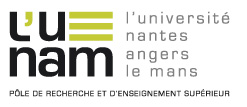Novel chemical tyrosine functionalization of adeno-associated virus improves gene transfer efficiency in liver and retina
Résumé
Decades of biological and clinical research have led to important advances in recombinant adeno-associated viruses rAAV-based gene therapy gene therapy. However, several challenges must be overcome to fully exploit the potential of rAAV vectors. Innovative approaches to modify viral genome and capsid elements have been used to overcome issues such as unwanted immune responses and off-targeting. While often successful, genetic modification of capsids can drastically reduce vector yield and often fails to produce vectors with properties that translate across different animal species, such as rodents, non-human primates, and humans. Here, we describe a chemical bioconjugation strategy to modify tyrosine residues on AAV capsids using specific ligands, thereby circumventing the need to genetically engineer the capsid sequence. Aromatic electrophilic substitution of the phenol ring of tyrosine residues on AAV capsids improved the in vivo transduction efficiency of rAAV2 vectors in both liver and retinal targets. This tyrosine bioconjugation strategy represents an innovative technology for the engineering of rAAV vectors for human gene therapy.
| Origine | Publication financée par une institution |
|---|

